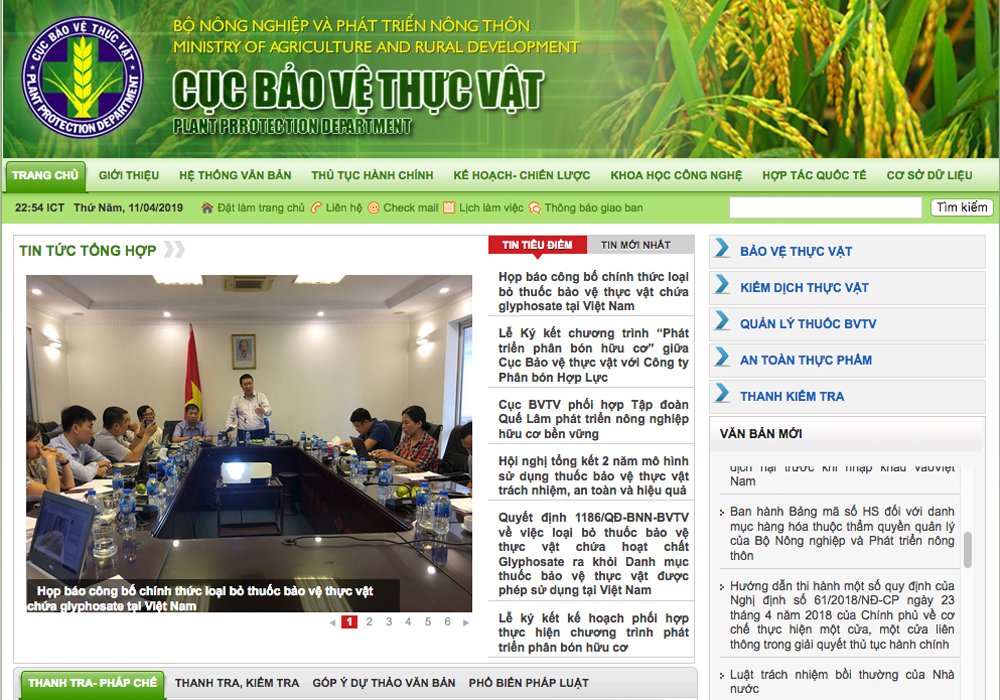The decision to halt all use of the herbicide in 60 days is condemned for lack of consultation and lack of scientific data
In a decision that appeared to come out of nowhere, Vietnam has banned the use of glyphosate.
Vietnam’s Ministry of Agriculture and Rural Development announced the decision April 10, and the ban will take effect 60 days from then.
“Herbicides containing glyphosate cannot be produced in or imported into Vietnam,” VN Express International reported.
Products containing glyphosate, stored on farms or in warehouses in Vietnam can be sold or used for one year after the decision takes effect. At that point, all glyphosate herbicides will be collected and destroyed.
Read Also

Farming Smarter receives financial boost from Alberta government for potato research
Farming Smarter near Lethbridge got a boost to its research equipment, thanks to the Alberta government’s increase in funding for research associations.
Vietnam is a relatively small producer of grains, oilseeds and other crops, but the country does have 25 million farmers. Its decision on glyphosate, the active ingredient in Roundup herbicide, prompted strong reactions from high places.
“We are disappointed in Vietnam’s decision to ban glyphosate, a move that will have devastating impacts on global agricultural production. As I’ve often said, if we’re going to feed 10 billion people by 2050, farmers worldwide need all the tools and technologies at our disposal,” U.S. Agriculture Secretary Sonny Perdue said in a statement.
“On numerous occasions, USDA has shared scientific studies with MARD (agriculture ministry in Vietnam) from the U.S. Environmental Protection Agency and other internationally recognized regulatory bodies, concluding that glyphosate is unlikely to pose a carcinogenic hazard to humans. This ban flies on the face of that scientific evidence. Furthermore, Vietnam has sidestepped its obligation to notify this regulatory change to the World Trade Organization.”
CropLife Asia, the voice of the plant science industry in the region, also condemned the ban. It said the Vietnamese government did not consult with farmers, agricultural industry representatives or scientific experts before taking action on glyphosate.
“There were no consultations … and no new scientific data to support taking this detour,” CropLife Asia said.
“The overwhelming evidence strongly supports ensuring Vietnam’s 25 million farmers continue to have access to safe and effective herbicides like glyphosate.”
Vietnam’s ban comes shortly after a U.S. court decision on glyphosate.
Last month, a jury in San Francisco unanimously concluded that glyphosate was the cause of non-Hodgkin’s lymphoma in Edwin Hardeman, a 70-year old who lives in Sonoma County.
It was the second case where a San Francisco court decided there’s a link between glyphosate and the disease. Last year, another jury determined that glyphosate caused the cancer of Dewayne Johnson, a former groundskeeper. The jury said Monsanto, the maker of Roundup, failed to warn regulators and the public about the dangers of glyphosate and awarded Johnson compensation of $289 million. A judge later reduced the payout to $78 million.
There are thousands of similar cases regarding glyphosate and cancer in U.S. courts. Many investors believe the legal issues surrounding the herbicide represent a major financial risk to Bayer, which acquired Monsanto and its technologies last year.
The California jury decisions and Vietnam’s ban are not supported by the body of scientific evidence.
National health regulators in countries around the globe have studied the herbicide. All of the regulators, including the U.S. EPA and the European Food Safety Authority, have found it doesn’t represent a health risk to humans.
In 2017, Health Canada reached a similar conclusion and reiterated its position this January.


















